Paper accepted at WI 2017
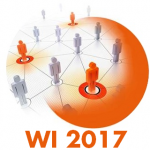 We are very pleased to announce that our group got a paper accepted for presentation at The International Conference on Web Intelligence (WI), which will be held in Leipzig between the 23th – 26th of August. The WI is an important international forum for research advances in theories and methods usually associated with Collective Intelligence, Data Science, Human-Centric Computing, Knowledge Management, and Network Science.
We are very pleased to announce that our group got a paper accepted for presentation at The International Conference on Web Intelligence (WI), which will be held in Leipzig between the 23th – 26th of August. The WI is an important international forum for research advances in theories and methods usually associated with Collective Intelligence, Data Science, Human-Centric Computing, Knowledge Management, and Network Science.
“LOG4MEX: A Library to Export Machine Learning Experiments” by Diego Esteves, Diego Moussallem, Tommaso Soru, Ciro Baron Neto, Jens Lehmann, Axel-Cyrille Ngonga Ngomo and Julio Cesar Duarte.
Abstract: A choice of the best computational solution for a particular task is increasingly reliant on experimentation. Even though experiments are often described through text, tables, and figures, their descriptions are often incomplete or confusing. Thus, researchers often have to perform lengthy web searches for reproducing and understanding the results. In order to minimize this gap, vocabularies and ontologies have been proposed for representing data mining and machine learning (ML) experiments. However, we still lack proper tools to export properly these metadata. To this end, we present an open-source library dubbed LOG4MEX which aims at supporting the scientific community to fulfill this gap.
Acknowledgments
This work is supported by the European Union’s H2020 research and innovation action HOBBIT (GA no. 688227) and the European Union’s H2020 research and innovation program BigDataEurope. (GA no.644564).
Looking forward to seeing you at WI 2017. More information on the program can be found here.
SML-Bench 0.2 Released
Dear all,
we are happy to announce the 0.2 release of SML-Bench, our Structured Machine Learning benchmark framework. SML-Bench provides full benchmarking scenarios for inductive supervised machine learning covering different knowledge representation languages like OWL and Prolog. It already comes with adapters for prominent inductive learning systems like the DL-Learner, the General Inductive Logic Programming System (GILPS), and Aleph, as well as Inductive Logic Programming ‘classics’ like Golem and Progol. The framework is easily extensible, be it in terms of new benchmarking scenarios, or support for new learning systems. SML-Bench allows to define, run and report on benchmarks combining different scenarios and learning systems giving insight into the performance characteristics of the respective inductive learning algorithms on a wide range of learning problems.
Website: http://sml-bench.aksw.org/
GitHub page: https://github.com/AKSW/SML-Bench/
Change log: https://github.com/AKSW/SML-Bench/releases/tag/0.2
In the current release we extended the options to configure learning systems in the overall benchmarking configuration, and added support for running multiple instances of a learning system, as well as the nesting of instance-specific settings and settings that apply to all instances of a learning system. Besides internal refactoring to increase the overall software quality, we also extended the reporting capabilities of the benchmark results. We added a new benchmark scenario and experimental support for the Statistical Relational Learning system TreeLiker.
We want to thank everyone who helped to create this release and appreciate any feedback.
Best regards,
Patrick Westphal, Simon Bin, Lorenz Bühmann and Jens Lehmann
SDA @WWW2017
 The WWW conference is an important international forum for the evolution of the web, technical standards, the impact of the web on society, and its future. Our members have actively participated in the 26th International World Wide Web Conference (WWW 2017), which took place on the sunny shores of Perth, Western Australia /3-7 April 2017.
The WWW conference is an important international forum for the evolution of the web, technical standards, the impact of the web on society, and its future. Our members have actively participated in the 26th International World Wide Web Conference (WWW 2017), which took place on the sunny shores of Perth, Western Australia /3-7 April 2017.
We are very pleased to report that:
A paper from our group was accepted for presentation as full research paper at WWW 2017:
- “Neural Network-based Question Answering over Knowledge Graphs on Word and Character Level” by Denis Lukovnikov, Asja Fischer, Soeren Auer, and Jens Lehmann.
Denis presented his work on Neural Network-based QA over Knowledge Graphs on Word and Character Level based on teafacto Project in the main conference. The audience showed high interest in his presentation and appreciated the neural network-based question answering and its embeddings understanding provided by the teafacto system. Following discussion included further challenges in QA system and constructive suggestions for possible improvement.Our #neuralnetwork based #questionanswering approach for #knowledgegraphs presented by Denis at #www2017 https://t.co/IVEEwrD6vR pic.twitter.com/IZs6RlNtoX
— Jens Lehmann (@JLehmann82) April 6, 2017
A 10thWorkshop on Linked Data on the Web (LDOW2017) was organized by Sören Auer, Sir Tim Berners-Lee, Christian Bizer, Sarven Capadisli, Tom Heath, Krzysztof Janowicz, Jens Lehmann, Hideaki Tacked
The Web is developing from a medium for publishing textual documents into a medium for sharing structured data. This trend is fuelled by the adoption of Linked Data principles by a growing number of data providers and the increasing trend to include semantic markup of content of HTML pages. LDOW2017 aims to stimulate discussion and further research into the challenges of publishing, consuming, and integrating structured data from the Web as well as mining knowledge from the global Web of Data.
The audience showed high interest for the workshop.
Not enough seats for the #LDOW2017 workshop at #www2017. Only 40 people fitting in …
— Jens Lehmann (@JLehmann82) April 3, 2017
Following discussion included further challenges on Pioneering the Linked Open Research Cloud and The Future of Linked Data.
WWW2017 was a great venue to meet the community, create new connections, talk about current research challenges, share ideas and settle new collaborations. We look forward to the next WWW conferences.
Invited talk by Anisa Rula
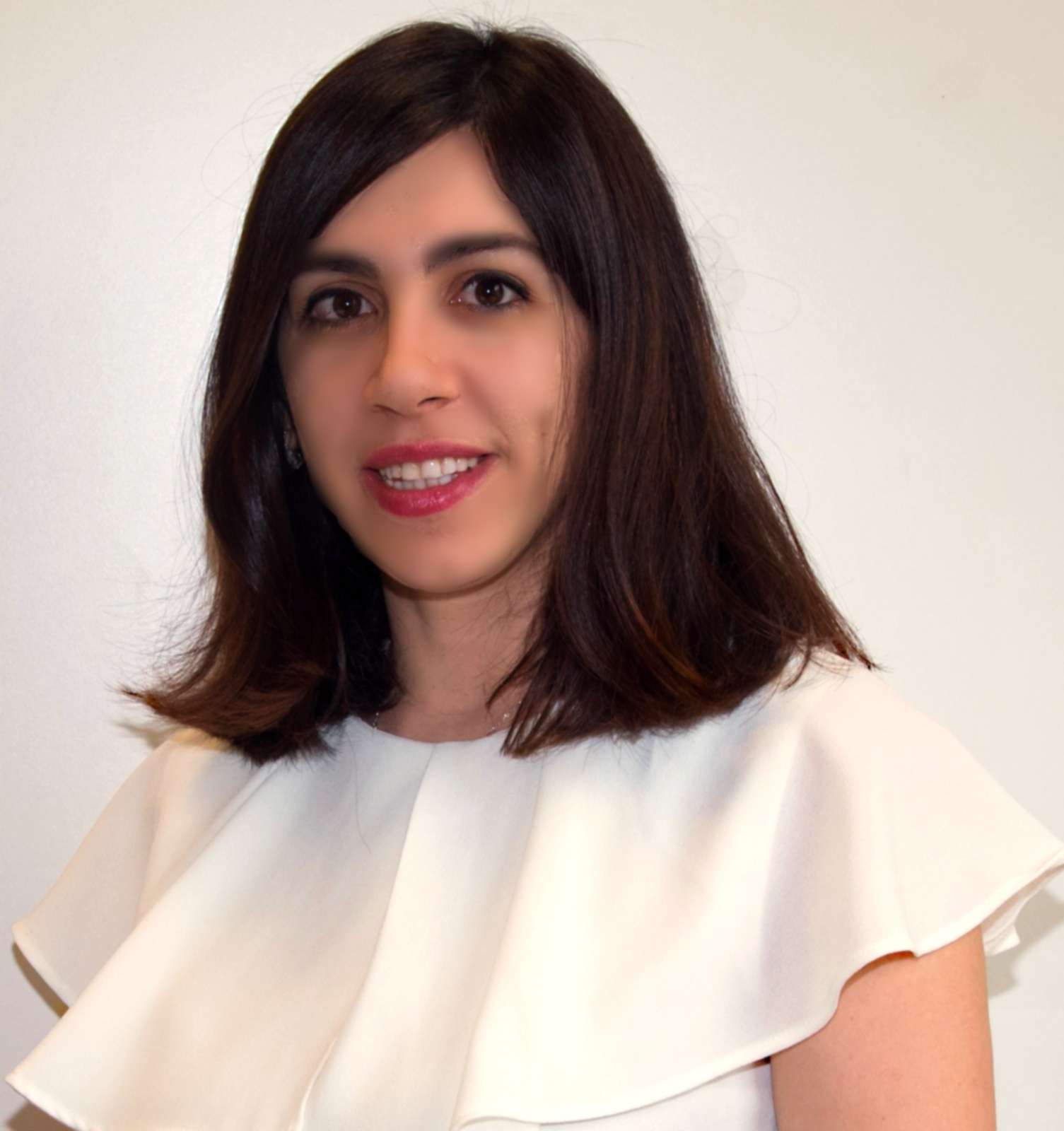 On Tuesday, 28th Dr. Anisa Rula, a postdoctoral researcher at The University of Milano-Bicocca visited SDA and gave a talk entitled “Enriching Knowledge Bases through Quality Assessment”.
On Tuesday, 28th Dr. Anisa Rula, a postdoctoral researcher at The University of Milano-Bicocca visited SDA and gave a talk entitled “Enriching Knowledge Bases through Quality Assessment”.
Anisa presented a talk in the context of quality dimensions and their evolution and how the anatomy of data representation and the quality assessment in Knowledge Bases (KBs) could lead to the improvement of existing KBs, i.e., by providing an enrichment of KBs. The trade-off between the enrichment and quality of KGs were risen up and discussed in details. Some of the use cases were mentioned as well, with the main focus on Link Discovery. In particular, enriching KBs will help in better interlinking by eliminating noise and search space.
During the talk, she also introduced ABSTAT, an ontology-driven linked data summarization framework that generates summaries of Linked Data datasets that comprises a set of Abstract Knowledge patterns, statistics, and a subtype graph.
Prof. Dr. Jens Lehmann invited the speaker to the bi-weekly “SDA colloquium presentations”, so there was good representation from various students and researchers from our group.
The Slides of the talk of our invited speaker Anisa Rula were inspired by “Data Quality Issues in Linked Open Data”, a chapter of the book “Data and Information Quality by Carlo Batini and Monica Scannapieco.
With this visit, we expect to strengthen our research collaboration networks with the Department of Computer Science, Systems and Communication, University of Milan-Bicocca, mainly on combining quality assessment metrics and distributed frameworks applied on SANSA
Paper accepted at WWW 2017
 We are very pleased to announce that our group got a paper accepted for presentation at the 26th International World Wide Web Conference (WWW 2017), which will be held on the sunny shores of Perth, Western Australia /3-7 April, 2017. The WWW is an important international forum for the evolution of the web, technical standards, the impact of the web on society, and its future.
We are very pleased to announce that our group got a paper accepted for presentation at the 26th International World Wide Web Conference (WWW 2017), which will be held on the sunny shores of Perth, Western Australia /3-7 April, 2017. The WWW is an important international forum for the evolution of the web, technical standards, the impact of the web on society, and its future.
“Neural Network-based Question Answering over Knowledge Graphs on Word and Character Level” by Denis Lukovnikov, Asja Fischer, Soeren Auer, and Jens Lehmann.
Abstract: Question Answering (QA) systems over Knowledge Graphs (KG) automatically answer natural language questions using facts contained in a knowledge graph. Simple questions, which can be answered by the extraction of a single fact, constitute a large part of questions asked on the web but still pose challenges to QA systems, especially when asked against a large knowledge resource. Existing QA systems usually rely on various components each specialised in solving different sub-tasks of the problem (such as segmentation, entity recognition, disambiguation, and relation classification etc.). In this work, we follow a quite different approach: We train a neural network for answering simple questions in an end-to-end manner, leaving all decisions to the model. It learns to rank subject-predicate pairs to enable the retrieval of relevant facts given a question. The network contains a nested word/character-level question encoder which allows to handle out-of-vocabulary and rare word problems while still being able to exploit word-level semantics. Our approach achieves results competitive with state-of-the-art end-to-end approaches that rely on an attention mechanism.
Acknowledgments
This work is supported in part by the European Union under the Horizon 2020 Framework Program for the project WDAqua (GA 642795).
Looking forward to seeing you at WWW.
Paper accepted at ICWE 2017
 We are very pleased to announce that our group got a paper accepted for presentation at the 17th International Conference on Web Engineering (ICWE 2017 ), which will be held on 5 – 8 June 2017 / Rome Italy. The ICWE is an important international forum for the Web Engineering Community.
We are very pleased to announce that our group got a paper accepted for presentation at the 17th International Conference on Web Engineering (ICWE 2017 ), which will be held on 5 – 8 June 2017 / Rome Italy. The ICWE is an important international forum for the Web Engineering Community.
“The BigDataEurope Platform – Supporting the Variety Dimension of Big Data“ Sören Auer, Simon Scerri, Aad Versteden, Erika Pauwels, Angelos Charalambidis, Stasinos Konstantopoulos, Jens Lehmann, Hajira Jabeen, Ivan Ermilov, Gezim Sejdiu, Andreas Ikonomopoulos, Spyros Andronopoulos, Mandy Vlachogiannis, Charalambos Pappas, Athanasios Davettas, Iraklis A. Klampanos, Efstathios Grigoropoulos, Vangelis Karkaletsis, Victor de Boer, Ronald Siebes, Mohamed Nadjib Mami, Sergio Albani, Michele Lazzarini, Paulo Nunes, Emanuele Angiuli, Nikiforos Pittaras, George Giannakopoulos, Giorgos Argyriou, George Stamoulis, George Papadakis, Manolis Koubarakis, Pythagoras Karampiperis, Axel-Cyrille Ngonga Ngomo, Maria-Esther Vidal.
Abstract: The management and analysis of large-scale datasets – described with the term Big Data – involves the three classic dimensions volume, velocity and variety. While the former two are well supported by a plethora of software components, the variety dimension is still rather neglected. We present the BDE platform – an easy-to-deploy, easy-to-use and adaptable (cluster-based and standalone) platform for the execution of big data components and tools like Hadoop, Spark, Flink, Flume and Cassandra. The BDE platform was designed based upon the requirements gathered from seven of the societal challenges put forward by the European Commission in the Horizon 2020 programme and targeted by the BigDataEurope pilots. As a result, the BDE platform allows to perform a variety of Big Data flow tasks like message passing, storage, analysis or publishing. To facilitate the processing of heterogeneous data, a particular innovation of the platform is the Semantic Layer, which allows to directly process RDF data and to map and transform arbitrary data into RDF. The advantages of the BDE platform are demonstrated through seven pilots, each focusing on a major societal challenge.
Acknowledgments
This work is supported by the European Union’s Horizon 2020 research and innovation program under grant agreement no.644564 – BigDataEurope.
“AskNow: A Framework for Natural Language Query Formalization in SPARQL” elected as Paper of the month
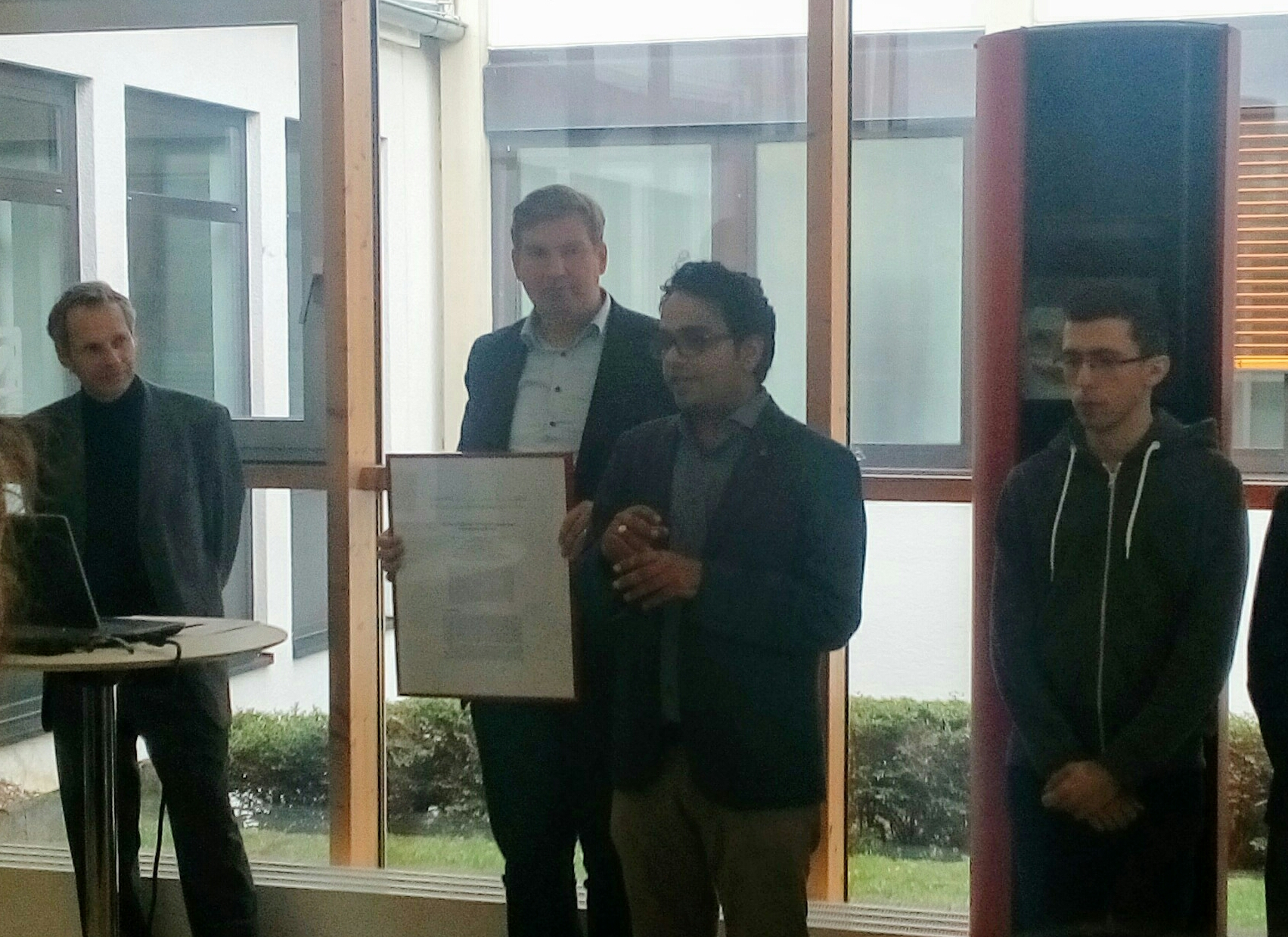 We are very pleased to announce that our paper “AskNow: A Framework for Natural Language Query Formalization in SPARQL” by Mohnish Dubey, Sourish Dasgupta, Ankit Sharma, Konrad Höffner, Jens Lehmann has been elected as the Paper of the month at Fraunhofer IAIS. This award is given to publications that have a high innovation impact in the research field after a committee evaluation.
We are very pleased to announce that our paper “AskNow: A Framework for Natural Language Query Formalization in SPARQL” by Mohnish Dubey, Sourish Dasgupta, Ankit Sharma, Konrad Höffner, Jens Lehmann has been elected as the Paper of the month at Fraunhofer IAIS. This award is given to publications that have a high innovation impact in the research field after a committee evaluation.
This research paper has been accepted on ESWC 2016 main conference and its core work of Natural Language Query Formalization in SPARQL is based on AskNow Project.
Abstract: Natural Language Query Formalization involves semantically parsing queries in natural language and translating them into their corresponding formal representations. It is a key component for developing question-answering (QA) systems on RDF data. The chosen formal representation language in this case is often SPARQL. In this paper, we propose a framework, called AskNow, where users can pose queries in English to a target RDF knowledge base (e.g. DBpedia), which are first normalized into an intermediary canonical syntactic form, called Normalized Query Structure (NQS), and then translated into SPARQL queries. NQS facilitates the identification of the desire (or expected output information) and the user-provided input information, and establishing their mutual semantic relationship. At the same time, it is sufficiently adaptive to query paraphrasing. We have empirically evaluated the framework with respect to the syntactic robustness of NQS and semantic accuracy of the SPARQL translator on standard benchmark datasets.
The paper and authors were honored for this publication in a special event at Fraunhofer Schloss Birlinghoven, Sankt Augustin, Germany.
Invited talk by Paul Groth
 On Tuesday, 7th February, Paul Groth from Elsevier Labs visited SDA and gave a talk entitled “Applying Knowledge Graphs”.
On Tuesday, 7th February, Paul Groth from Elsevier Labs visited SDA and gave a talk entitled “Applying Knowledge Graphs”.
Paul presented a talk in the context of building large knowledge graphs at Elsevier. He gave a great talk on how to motivate the need for Knowledge Graph observatories in order to provide empirical evidence for how to deal with changing over Knowledge Bases.
Enjoyed visiting @SDA_Research and @JLehmann82 today. Combining #semantics distcompute #ml see https://t.co/LyVDbygBgC @ApacheSpark https://t.co/TBovCsKWpv
— Paul Groth (@pgroth) February 7, 2017
The talk was invited from Prof. Dr. Jens Lehmann on “Knowledge Graph Analysis” lectures so there was good representation from various students and researchers from SDA and EIS group.
The Slides of the talk of our invited speaker Paul Groth can be found here:
With this visit, we expect to strengthen our research collaboration networks with Elsevier Labs, mainly on combining semantics and distributed machine learning applied on SANSA.
Paper accepted at ESWC 2017
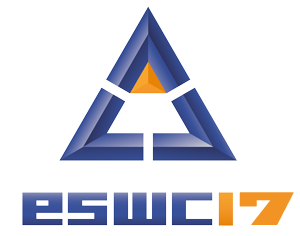 We are very pleased to announce that our group got one paper accepted for presentation at the 14th Extended Semantic Web Conference (ESWC 2017) research track, held in Portoroz, Slovenia from 28th of May to the 1st of June. The ESWC is an important international forum for the Semantic Web / Linked Data Community.
We are very pleased to announce that our group got one paper accepted for presentation at the 14th Extended Semantic Web Conference (ESWC 2017) research track, held in Portoroz, Slovenia from 28th of May to the 1st of June. The ESWC is an important international forum for the Semantic Web / Linked Data Community.
“WOMBAT – A Generalization Approach for Automatic Link Discovery” Mohamed Ahmed Sherif, Axel-Cyrille Ngonga Ngomo, Jens Lehmann
Abstract. A significant portion of the evolution of Linked Data datasets lies in updating the links to other datasets. An important challenge when aiming to update these links automatically under the open-world assumption is the fact that usually only positive examples for the links exist. We address this challenge by presenting and evaluating WOMBAT , a novel approach for the discovery of links between knowledge bases that relies exclusively on positive examples. WOMBAT is based on generalisation via an upward refinement operator to traverse the space of link specification. We study the theoretical characteristics of WOMBAT and evaluate it on 8 different benchmark datasets. Our evaluation suggests that WOMBAT outperforms state-of-the-art supervised approaches while relying on less information. Moreover, our evaluation suggests that WOMBAT’s pruning algorithm allows it to scale well even on large datasets.
Acknowledgments
This work is supported by the European Union’s H2020 research and innovation action HOBBIT (GA no. 688227), the European Union’s H2020 research and innovation action SLIPO (GA no. 731581) and the BMWI Project GEISER (project no. 01MD16014).
Asja Fischer has won Best Paper Award
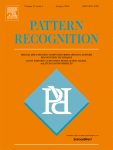 We are very pleased to announce that our paper “Training restricted Boltzmann machines: An introduction by Asja Fischer and Christian Igel. Pattern Recognition. Volume 47, Issue 1, Jan. 2014, Pages 25-39″ was awarded the Pattern Recognition Journal Best Paper Award 2014. The biennial award is given to the best paper published in the journal Pattern Recognition, the official journal of the Pattern Recognition Society.
We are very pleased to announce that our paper “Training restricted Boltzmann machines: An introduction by Asja Fischer and Christian Igel. Pattern Recognition. Volume 47, Issue 1, Jan. 2014, Pages 25-39″ was awarded the Pattern Recognition Journal Best Paper Award 2014. The biennial award is given to the best paper published in the journal Pattern Recognition, the official journal of the Pattern Recognition Society.
The idea behind the paper was to provide implementations of Restricted Boltzmann machines (RBMs), which are probabilistic graphical models that can be interpreted as stochastic neural networks. They have attracted much attention as building blocks of deep learning systems called deep belief networks, and variants and extensions of RBMs have found application in a wide range of pattern recognition tasks. The article introduces RBMs from the viewpoint of Markov random fields (undirected graphical models).
Abstract
Restricted Boltzmann machines (RBMs) are probabilistic graphical models that can be interpreted as stochastic neural networks. They have attracted much attention as building blocks for the multi-layer learning systems called deep belief networks, and variants and extensions of RBMs have found application in a wide range of pattern recognition tasks. This tutorial introduces RBMs from the viewpoint of Markov random fields, starting with the required concepts of undirected graphical models. Different learning algorithms for RBMs, including contrastive divergence learning and parallel tempering, are discussed. As sampling from RBMs, and therefore also most of their learning algorithms, are based on Markov chain Monte Carlo (MCMC) methods, an introduction to Markov chains and MCMC techniques is provided. Experiments demonstrate relevant aspects of RBM training.
Stay tuned for more news 🙂
